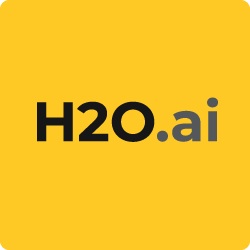Discover and explore top open-source AI tools and projects—updated daily.
deep-learning-pytorch-huggingface by  philschmid
philschmid
Tutorials for deep learning with PyTorch and Hugging Face libraries
Top 29.4% on SourcePulse
This repository provides a curated collection of tutorials and examples for deep learning practitioners looking to leverage PyTorch and Hugging Face libraries. It covers advanced fine-tuning techniques for large language models (LLMs) and efficient inference strategies, targeting researchers and engineers working with state-of-the-art NLP models.
How It Works
The project demonstrates practical applications of Hugging Face's transformers, datasets, and accelerate libraries, often integrating with DeepSpeed and PyTorch's Fully Sharded Data Parallel (FSDP) for distributed training. It showcases techniques like LoRA, Q-LoRA, DeepSpeed ZeRO, and Flash Attention for efficient fine-tuning of large models, and explores quantization methods like GPTQ for optimized inference.
Quick Start & Requirements
- Installation typically involves
pip install transformers datasets accelerate deepspeed optimum bitsandbytes trl. - Requires PyTorch, Python 3.8+, and potentially CUDA-enabled GPUs for efficient training and inference.
- Specific examples may have additional dependencies like
peftorsentence-transformers. - Official documentation and examples are available within the repository.
Highlighted Details
- Comprehensive fine-tuning examples for various LLMs including FLAN-T5, Falcon 180B, and Llama 2.
- Demonstrations of advanced training techniques like DeepSpeed ZeRO, LoRA, Q-LoRA, and FSDP.
- Coverage of efficient inference methods such as FP8, GPTQ quantization, and speculative decoding.
- Tutorials on instruction-tuning, RAG, and RLHF using methods like DPO.
Maintenance & Community
The repository is maintained by Phil Schmid, a prominent figure in the Hugging Face ecosystem. Community interaction and further resources can typically be found through Hugging Face's official channels.
Licensing & Compatibility
The repository's code is generally licensed under the MIT License, allowing for broad use and modification. However, users should verify the licenses of individual models and datasets used in the examples, as they may have their own specific terms.
Limitations & Caveats
Many examples focus on very large models (e.g., Falcon 180B, Llama 2) requiring significant computational resources (multiple high-end GPUs, substantial VRAM) and may be impractical for users without access to such hardware. Some advanced techniques are presented as forward-looking (e.g., "Fine-tune LLMs in 2025").
1 year ago
Inactive

 lwj2015
lwj2015 jianzhnie
jianzhnie NVIDIA-NeMo
NVIDIA-NeMo david-xinyuwei
david-xinyuwei TinyLLaVA
TinyLLaVA ghimiresunil
ghimiresunil Tongjilibo
Tongjilibo Alpha-VLLM
Alpha-VLLM 2U1
2U1 h2oai
h2oai microsoft
microsoft liguodongiot
liguodongiot